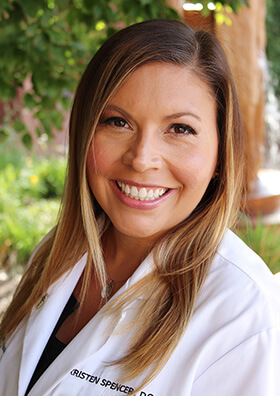September 1, 2021:
While the world continues to focus on the ever-challenging worldwide COVID-19 pandemic, groundbreaking research into potentially practice-changing novel therapies for oncology patients has continued. This year has been one of innovation in unprecedented times, and the field of gastrointestinal cancers has kept pace.
As an early phase clinical investigator at Rutgers Cancer Institute of New Jersey, my research focuses on developing novel combinations to treat advanced biliary tract, hepatic, and pancreatic cancers. Unfortunately, the rising incidence of hepatobiliary and pancreatic cancers, coupled with poor outcomes for these patients, continues to be a pressing reminder of our mission as researchers.
One project I am proud to be the national principal investigator of is BTCRC-GI20-457 “A Phase II study of Atezolizumab and Bevacizumab in Child-Pugh B7 Hepatocellular Carcinoma (the AB7 trial),” which is open to accrual at Rutgers Cancer Institute and is being conducted in collaboration with participating sites throughout the Big Ten Cancer Research Consortium. Unfortunately, hepatocellular carcinoma (HCC) is the fastest-increasing cancer-related cause of death in the United States. Therapy options for patients with advanced HCC are limited, and up until very recently median survival had been less than a year.
The phase III IMbrave150 trial investigated the combination of atezolizumab and bevacizumab in patients with untreated advanced or metastatic HCC as compared to the prior standard of care, sorafenib. The combination resulted in the longest overall survival seen in advanced HCC to date and resulted in improvements in response rate, disease control rate, duration of response, progression free survival, and quality of life. Unfortunately, enrollment to this trial was limited to patients with Child-Pugh class A liver dysfunction, and one monumental question looms: can this combination be safely applied in the 20-30 percent of patients classified as Child-Pugh B?
Our single-arm phase II study is investigating the safety of this combination in patients with CP B7 liver dysfunction, in addition to estimating whether the response rate, disease control rate, duration of response, progression free survival, and overall survival are similar in this patient population. Practically speaking, the AB7 trial mimics the design of the IMbrave150 trial, but with a particular focus on a number of safety parameters. In addition, the study incorporates innovative correlative analyses, including circulating tumor DNA (ctDNA) analysis to determine whether such blood-based molecular assays are representative of the changes that may be found within HCC tumors, and whether they are an earlier indication of disease response than standard imaging re-assessment. This last correlative question is critical in patients who are often battling both liver dysfunction and their cancer, where time is of the essence.
Rutgers Cancer Institute of New Jersey is a national leader in cancer research, and as such is poised to answer this critical question in one of our most vulnerable patient populations. Additionally, the collaboration and infrastructure provided by our integrated care model with RWJBarnabas Health ensures we are able to offer this critical trial to all of our patients that may benefit from it.
I could not be prouder of my colleagues from coast to coast, and of being a clinical investigator during this extraordinary time in our history of cancer discovery, and I am thrilled to be collaborating with the Big Ten Cancer Research Consortium to continue to move the needle forward for our patients!
Kristen Spencer, DO, MPH, is a medical oncologist in the Liver Cancer and Bile Duct Cancer Program and Phase I/Investigational Therapeutics Program at Rutgers Cancer Institute of New Jersey; and an assistant professor of medicine at Rutgers Robert Wood Johnson Medical School.
About the Big Ten Cancer Research Consortium: The Big Ten Cancer Research Consortium was created in 2013 to transform the conduct of cancer research through collaborative, hypothesis-driven, highly translational oncology trials that leverage the scientific and clinical expertise of Big Ten universities. The goal of the Big Ten Cancer Research Consortium is to create a unique team-research culture to drive science rapidly from ideas to new approaches to cancer treatment. Within this innovative environment, today’s research leaders collaborate with and mentor the research leaders of tomorrow with the unified goal of improving the lives of all patients with cancer.
About the Big Ten Conference: The Big Ten Conference is an association of world-class universities whose member institutions share a common mission of research, graduate, professional and undergraduate teaching and public service. Founded in 1896, the Big Ten has sustained a comprehensive set of shared practices and policies that enforce the priority of academics in the lives of students competing in intercollegiate athletics and emphasize the values of integrity, fairness and competitiveness. The broad-based programs of the 14 Big Ten institutions will provide over $200 million in direct financial support to more than 9,800 students for more than 11,000 participation opportunities on 350 teams in 42 different sports. The Big Ten sponsors 28 official conference sports, 14 for men and 14 for women, including the addition of men’s ice hockey and men’s and women’s lacrosse since 2013. For more information, visit www.bigten.org.















Subscribe to the Big Ten CRC Newsletter X
X Facebook
Facebook YouTube
YouTube